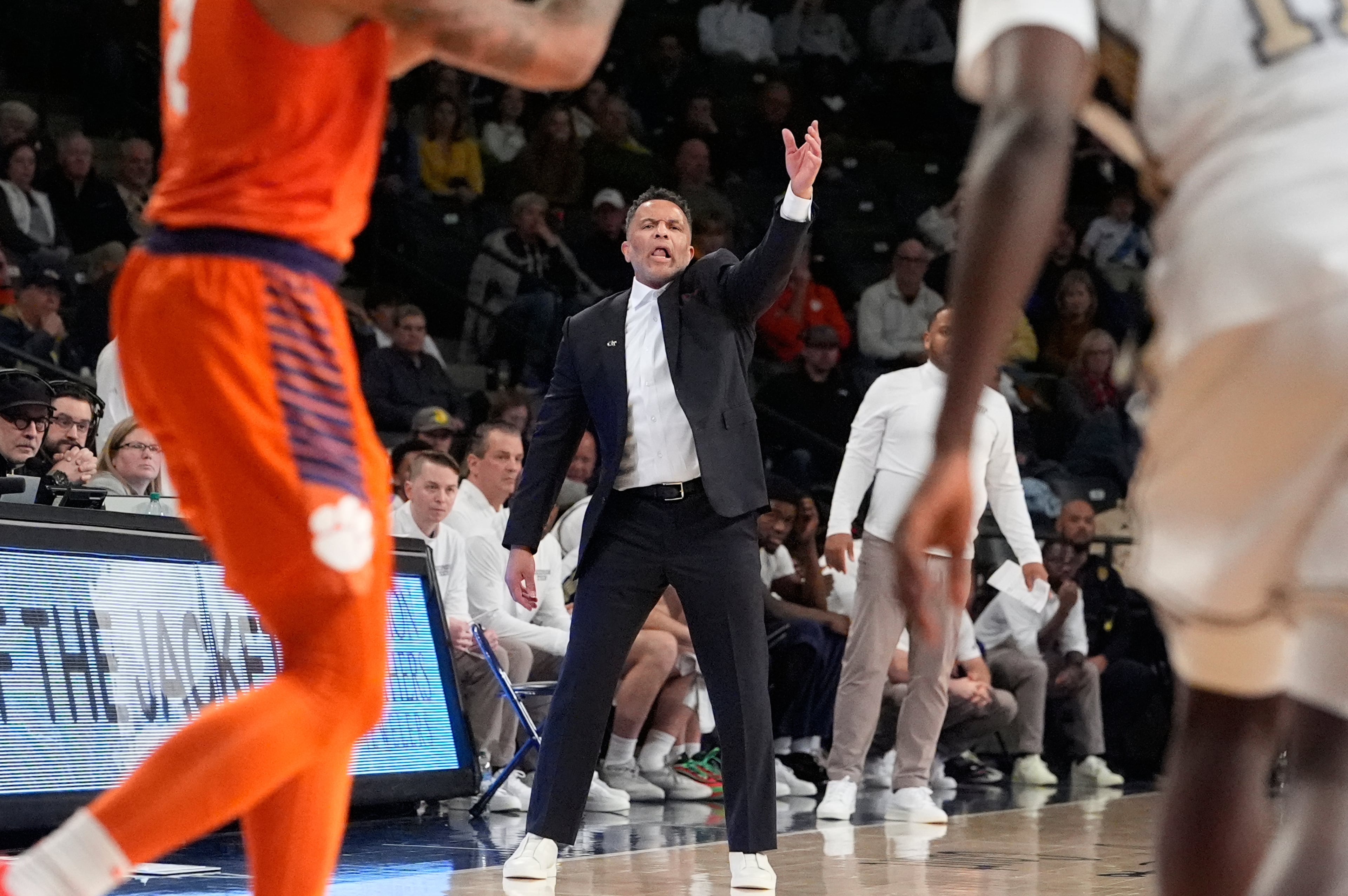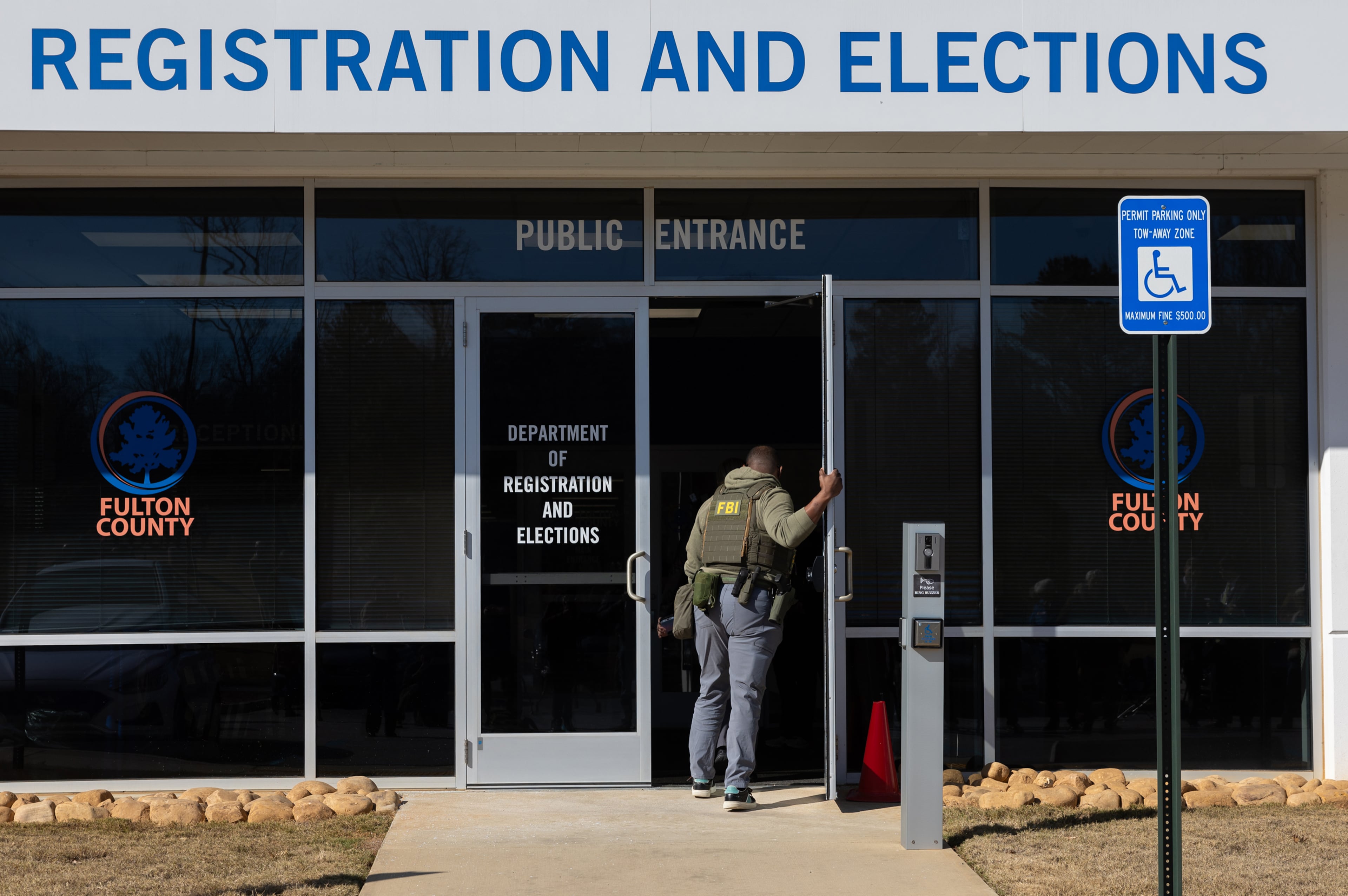Georgia Tech prepares for new age of college sports, from portals to NILs

Instead of waiting around to be reactive, Georgia Tech athletic director J Batt and his team have been proactive.
The changing NCAA landscape has been in hyperdrive for the past several years, from the whirling merry-go-round of the transfer portal to the murky definitions of name, image and likeness agreements. One of the denouements of the ongoing changes is the expected $2.8 billion settlement of House v. NCAA, which should be finalized this summer. That settlement is expected to afford schools $20.5 million to give its athletes.
Batt, part the settlement implementation committee, spoke with SiriusXM last week about the impending and historic decisions soon to be finalized.
“From a macro perspective, we’re gonna get a system that’s fair, that’s transparent. We’re gonna get a system that is much more, I would think, kind of balanced across the board,” Batt said. “I think that if we zoom all the way out, that’s what everyone wants to look for, something that is sustainable over time that certainly drives more revenue for student-athletes.
“That, at the end of the day, is a goal we’ve all been working toward and feel like this would put it into place, but also creates some of that structure, some of that transparency, some of that systematic approach to the NIL and revenue sharing going forward.”
How each NCAA-member school moves forward in 2025 and beyond will be unique to that school, Batt explained. The desires of a school’s fan base and its championship pedigree are just a couple of factors that could drive an athletic department to allocate its funds.
Thus, some schools may direct more money to football or men’s basketball or softball. What might be best for Tech might not be best for one of its ACC rivals, and vice versa.
“I would tell you that we’re really transparent with our coaches. We’ve got great buy-in across the board. We’ve been planning on how does this happen, what does it look like, for well over a year at this point in time,” Batt continued. “We’ve been working toward not only how we might fund it, how we might deploy it, what internal resources you need. We just did up a whole different vertical with our de facto general manager and enhanced legal team (and) finance to take care of rev share payments. All those sorts of things. It’s a huge shift for everybody in college athletics.”
For Brent Key, Tech’s third-year football coach, the strategic planning of how to build a roster, and who to pay what, is “exciting.” The former Tech offensive lineman has long been open about how he studies successful NFL franchises and how each uses the NFL draft, free agency and retention to build winning teams.
In a conversation with The Atlanta Journal-Constitution at ACC spring meetings, Key said the successful teams will be those who are smartest and most creative with their money. He also lauded the Tech administration for positioning the Yellow Jackets for success.
He said it all starts with Tech president Angel Cabrera and Batt being able to plan, being outfront and even hiring J.J. Cosh, Tech’s executive athletics director for player management.
Batt is “all-in,” Key said. “He’s all-in on us and what our mission is. Any time you can have the commitment of expectations marry-up, I think that’s important. Our expectations are to graduate players and win championships. And to have the commitment to that is great.”
Tech men’s basketball coach Damon Stoudamire is also entering his third season at Tech. Stoudamire came to Tech after two seasons as a Boston Celtics assistant, was also an assistant coach for the Memphis Grizzlies from 2009-11 and was an NBA player for nearly 15 years.
He said he certainly understands the new age of college athletics because of his background in the pros. Now it’s simply a matter of understanding how to assemble a team within the new NCAA guidelines.
“It’s ever evolving, and there’s equations and different things that you have to come into the equation when you’re trying to evaluate all these different things that you need to evaluate,” Stoudamire told the AJC. “But (Batt) has been really good. Up to this point he’s come through on everything he’s said.”
In April, Tech hired Karen Blair to be its new women’s basketball coach. A veteran assistant coach, Blair picked a difficult time to take her first head coaching gig.
Blair’s first team already has 10 newcomers, eight of whom are transfers. Like Key and Stoudamire, she expressed confidence her program is positioned to have success in the future of college athletics.
“Obviously, coming here, we’re very well supported. You’re in Atlanta, you’re in a hotbed for recruiting. We’ve got the support from our administration and, obviously, being in the ACC there was a lot of selling points for me, and that’s why I’m here at Georgia Tech,” Blair told the AJC. “I do think we can be a program — we want to be able to consistently make it to the NCAA Tournament. That’s what our goal is year in and year out.”
Navigating the new world of pay-for-play college athletics won’t come without its concerns, of course. Will Tech men’s basketball be able to compete with powerhouses like, say, North Carolina and Duke? Can Tech football maintain a higher level of success relative to its backyard bitter rivals like Georgia and Clemson? How will some of Tech’s other programs, like golf, tennis, or track and field fare among their peers?
Batt said those are evolving discussions. His hope is that Tech’s reputation as a premier academic institution can be used as an advantage to strengthen Tech’s sports across the board.
“At Georgia Tech, we don’t have unlimited resources across every sport. But what I do think is a positive is when you look at an institution like Georgia Tech with the academic pedigree, the opportunities in Atlanta, the opportunities for postcollege value in your degree — in a post-House settlement era, I firmly believe that institutions with high-quality education with great opportunities, those things will begin to have a greater value, similar to what they did before we were having a lot of the NIL era,” Batt added. “I think in some ways, particularly in the Olympic sports, those great facilities, those great coaches, those great academic-pedigree institutions and programs are gonna go back to a place of real strength.
“We’ve talked a lot about that internally, about how to position and continue to promote those parts of Georgia Tech regardless of where we end up in a rev-share number in a specific sport.”



